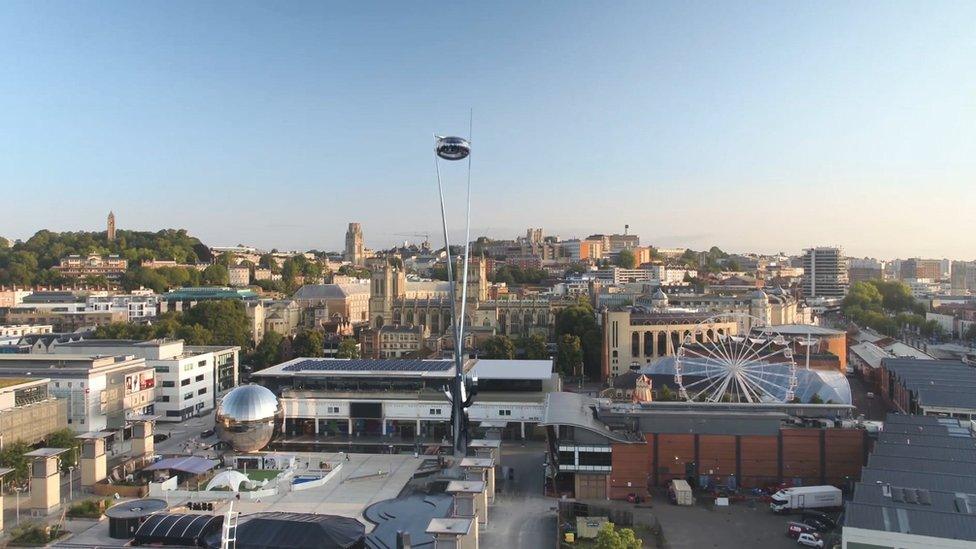Bristol Arc plans for 70m high viewing pod approved
- Published
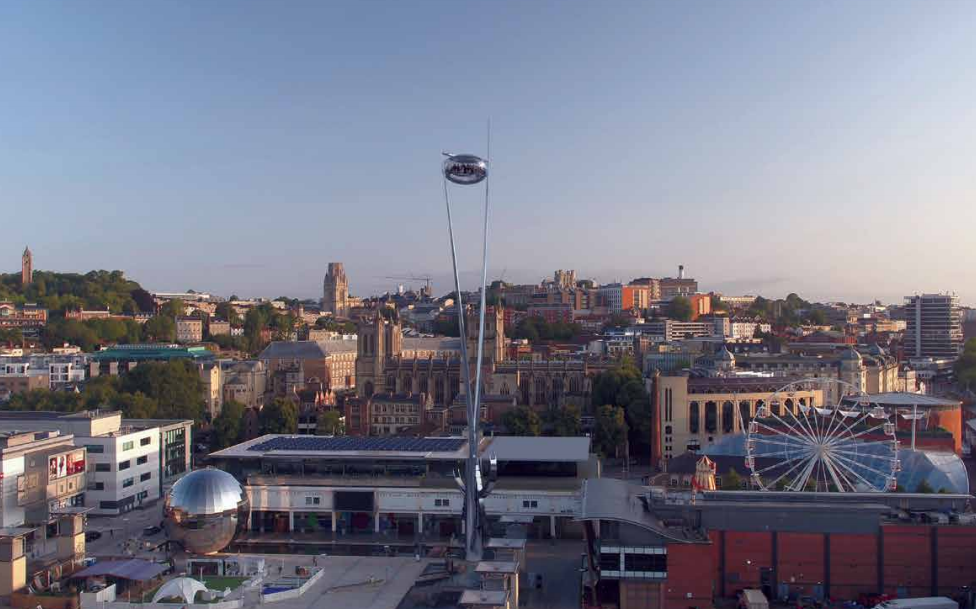
Arc Bristol would give passengers views over the harbourside and city centre
Plans for an attraction to elevate people nearly 70m (229ft) above Bristol city centre have been approved.
Council planners had recommended refusing permission for Arc Bristol, a glass capsule viewing pod raised by a pivoting structure.
They said the design, which has capacity for 44 people, was "overbearing" and would dominate the historical buildings nearby.
But councillors voted unanimously to approve the construction.
A joint planning application was submitted by Arc's developers and local science exhibition We The Curious.
The Arc will be able to carry up to 42 passengers and two crew on a 20-minute ride from the roof of We the Curious up to a height of 69m above the city.
There are plans for it to operate 12 to 18 hours per day.
The glass capsule would be suspended between two carbon-fibre masts that would pivot on their base to raise it up.
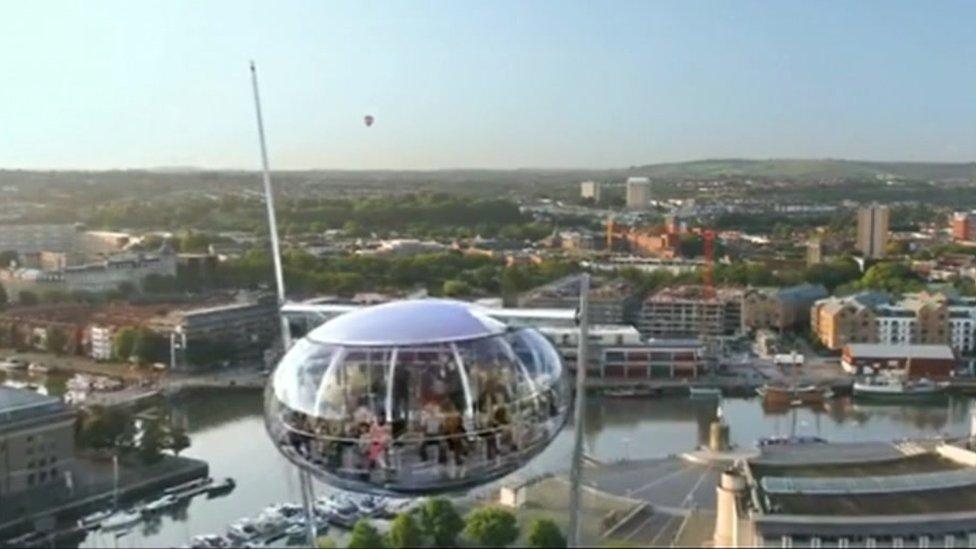
The structure will reach 78m (255ft) at its tallest point
Alice Ellis, project manager for Arc Bristol, said: "The base will be in Millennium Square and the mast will pivot around and turn the capsule.
"The unique thing about Arc is that it moves and we hope that people will get that 'wow' moment when they go up in the air, it is going to be really exhilarating."
Ms Ellis said Bristol "absolutely needs Arc", adding that it would bring "amazing benefits" as a "calling card to Bristol for the rest of the world".
The project has the support of business leaders, tourism chiefs and the Dean of nearby Bristol Cathedral.
Its height, reaching 78m (255ft) at its tallest point, is a cause for concern for some though, and the plan received objections from Historic England and the Victorian Society.
Bristol City Council planners said it would "result in a degree of less than substantial harm to the heritage assets" in the area and concluded "the benefits do not outweigh the scale of the harm involved".
However their concerns were discussed at length at a meeting on Thursday, but councillors disagreed and approved the plans.
It is understood the Arc could be in place in three years' time.
- Published15 April 2021

- Published14 April 2021
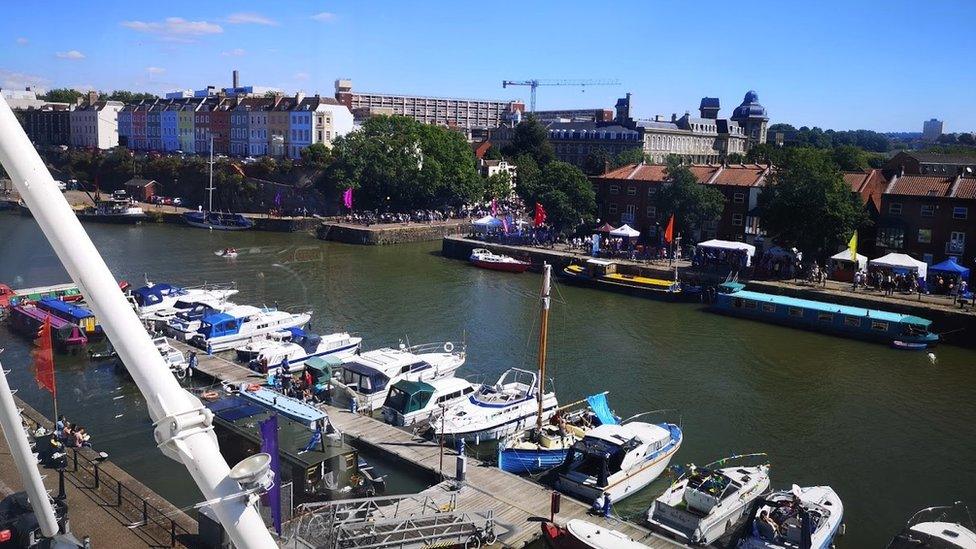
- Published13 April 2021
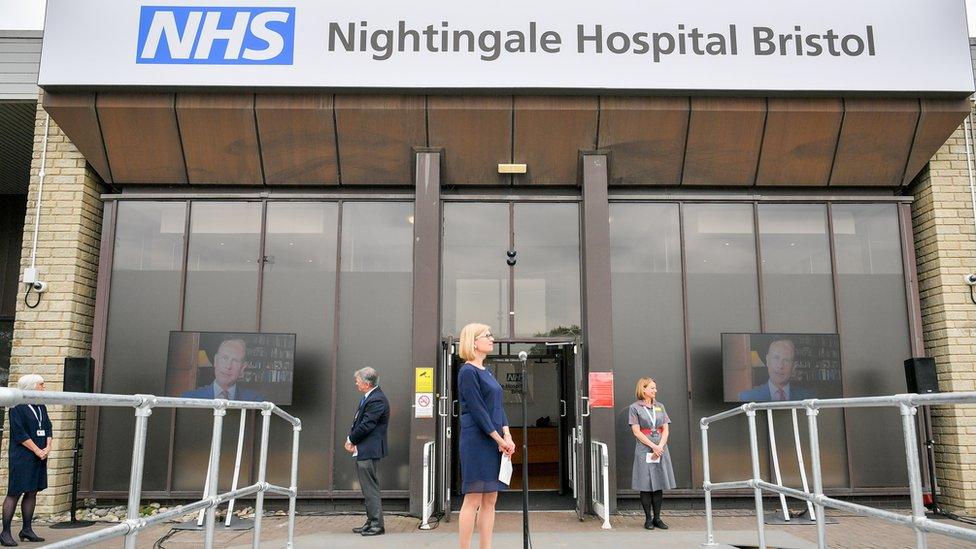
- Published5 October 2019
